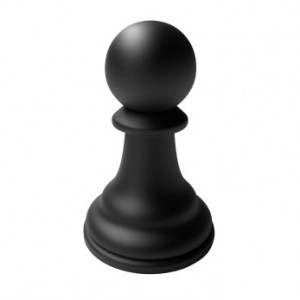Sometimes thought of as the weakest pieces in a Chess game, the pawns have often lacked the respect of novice chess players. These pieces are seen as disposable, powerless, and meant to be trampled upon by other, more important Chess pieces. However, you might be surprised to know that pawns can be some of the most dangerous pieces in a Chess game, and they deserve your respect.
Pawn Chains Are Stronger: Despite your level of Chess play, you can decipher at first glance that some pawns are in better positions of power than others. A lone pawn is in danger, but a pawn supported by his diagonal buddy has a strong chance of breaking through enemy lines. Amazingly, pawn chains are stronger because they can protect each other and even other pieces. That pawn chain is far better than doubled and isolated pawns; one in front of another, which cannot defend each other and are easy prey.
Protect Your Points: Sometimes the Chess pawn is seen as insignificant because each one’s only worth a single point. However, there are eight pawns on each side, which means you’ve eight points to gain from your opponent or eight points you could lose. In Chess, even 2 points can make or break a game, and you want to protect your points while collecting the pawn points of the other Chess player.
Pawns Can Be Promoted: In a serious game of Chess, pawns that successfully clear the board and make it to the other side can be promoted to any piece of its own color – except for the King. This means your once-insignificant, disrespected pawn can become a Rook, Bishop, Knight, or Queen. If you get several pawns across the board, you could regain every Chess piece that has been taken from you, giving you a new edge over your opponent. Many chess sets have an extra queen in case you promote a pawn while you still have your queen in the fray! Rarely, does it happen, but you could have two queens in play! Now that’s a powerful game.
You Can Play The Pawn Game: To prepare serious Chess players for championships and competitions, Chess masters and teachers in the early Nineteenth-Century would encourage their pupils to play The Pawn Game. This game is played like Chess, only pawns are used from the starting position. The game continues until either all pawns of your opponent are captured, or your pawns are captured. No moves can be made, or either player resigns.
Respect Your Pawns: Chess is a game of strategy, which means every piece should be of equal importance to the whole of your victory – pawns included. These Chess pieces, specifically, should be given your utmost respect, because when all of your other pieces have been captured, it’s a pawn that could ultimately win or lose the game.


